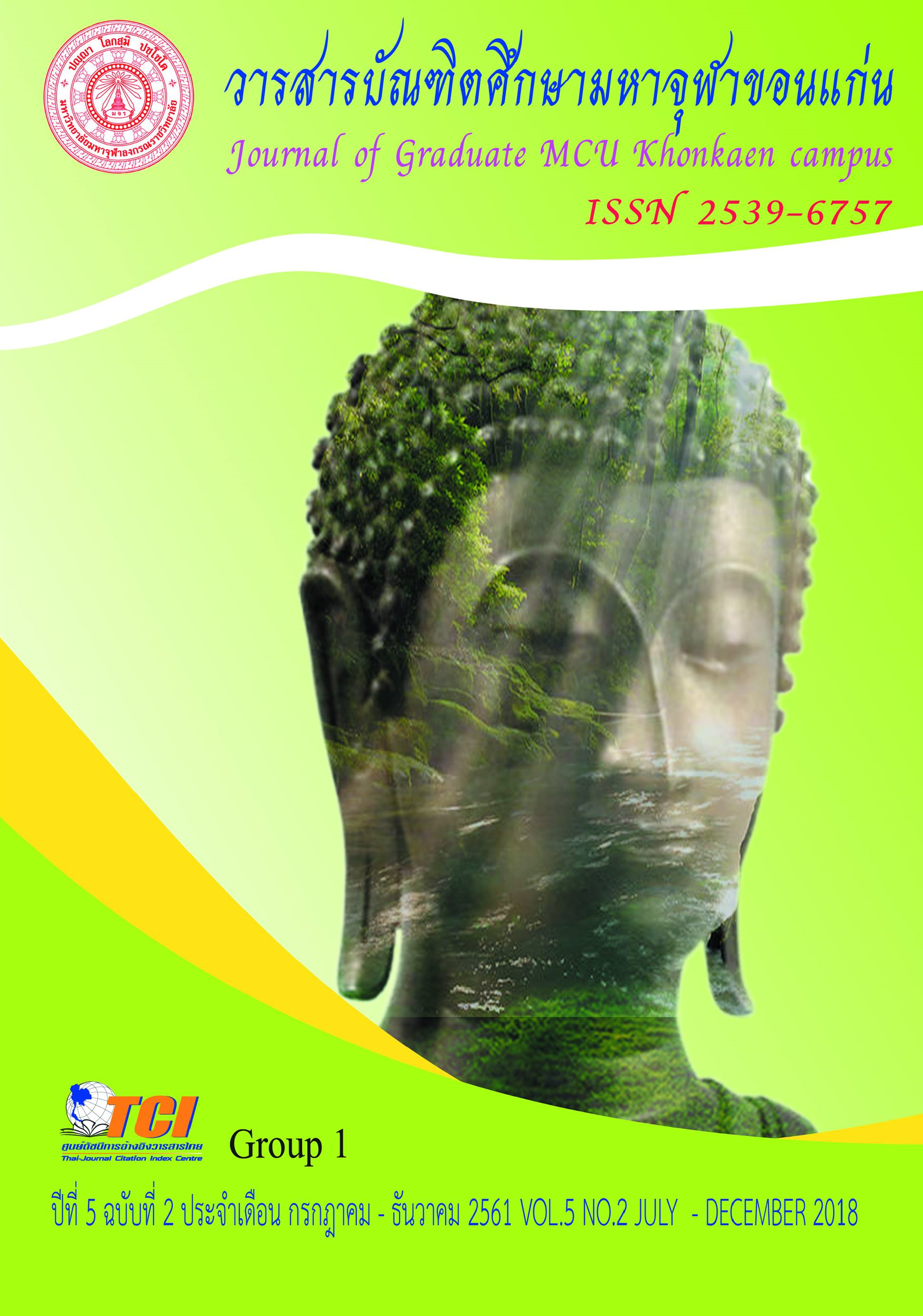ยุทธศาสตร์ 5 ส เชิงพุทธ ในการบริหารวัด
Main Article Content
Abstract
สังคมชาวพุทธไทยมีกระแสเรียกร้องให้มีการปฏิรูปงานพระพุทธศาสนา หลังจากที่มีข่าวเกี่ยวกับวัดและพระสงฆ์ในทางลบปรากฎตามสื่อต่างๆ นอกจากเรื่องความประพฤติของพระสงฆ์ซึ่งเป็นเรื่องส่วนบุคคลแล้ว ปัญหาของการบริหารจัดการวัดก็เป็นปัญหาสำคัญที่ต้องแก้ไข วัดในประเทศไทยมีทั้งวัดใหญ่และวัดเล็ก วัดส่วนหนึ่งมีขนาดใหญ่ มีกำลังในการดำเนินภารกิจที่หลากหลาย แต่วัดส่วนหนึ่งเป็นวัดเล็กๆ ตั้งอยู่ในชนบท ไม่มีกำลังพอจะดำเนินภารกิจที่หลากหลายได้ แต่มีจุดร่วมในการบริหารจัดการวัดที่สำคัญๆ เพียง 5 เรื่องหลักซึ่งเจ้าอาวาสในฐานะผู้บริหารจัดการวัดจะต้องดำเนินการให้มีประสิทธิภาพ เรียกว่า “ยุทธศาสตร์ 5 ส. เชิงพุทธ ในการบริหารวัด” ได้แก่ 1) สังฆะ 2) สังฆวัตร 3) สันถารธรรม 4) สวนะธรรม และ 5) เสนาสนะ หากเจ้าอาวาสสามารถจัดการเรื่องหลักทั้ง 5 เรื่องได้อย่างมีประสิทธิภาพ ก็จะสามารถยังความศรัทธาให้เกิดขึ้นได้ และเป็นการดำเนินการตามสิ่งที่พระพุทธเจ้าทรงวางเป็นแนวทางเอาไว้ตั้งแต่ครั้งพุทธกาล
Buddhist societies in Thailand have called for a reform of Buddhist work. After the negative news about Wat (monasteries) and monks appeared in the media. In addition to monks' behavior, this is a personal matter. The problem of management is an important issue that needs to be addressed. Wat (monasteries) in Thailand has both large and small. one part large, being able to perform a variety of missions. But part of a small where located in the countryside can not enough power to do various missions. But there are five main points of agreement or concurrent in the administration of monasteries, which the abbot, as a manager, must perform effectively. It is called the "Buddhist Five Strategies 5 S for monastery’s management",namely : 1) Sangha 2) Sangha’sobservance of precepts 3) Reception 4) Dhamma Learning and 5) monastery building.If the abbot can manage the five main issues effectively. It can also be believed. And it is the path that the Buddha has conducted since the time of the Buddha.
Article Details
References
PhraBrahmagunabhorn (P. A. Payutto). (2013). Dictionary of Buddhism. (19th ed.). Bangkok : S R Printing Mass Product Co. Ltd. PhraPhaisan Wisalo. (2003). Thai Buddhism in the future : Trends and solutions from the crisis. Bangkok : Sotsi-Srit Wong Foundation. PhraPhrombandit (PrayunThammachitto). (2015). Reformation Buddhism. PhraNakhonsiAyutthaya : Mahachulalongkornrajavidyalaya Publishing House. PhraRachworamathi, et al. (2017). Strategic Plan for Buddhist Reform 20172021. PhraNakhon Si Ayutthaya : Mahachulalongkornrajavidyalaya University Publishing House. Phosuwan, P. (2012). Local Strategy Development : From Concept to Practice. Bangkok : King Prajadhipok's Institute. Royal Academy. (2001). The definition of the strategy. Online. Retrieved August 4, 2018. From : http://www.royin.go.th/dictionary/index.php

